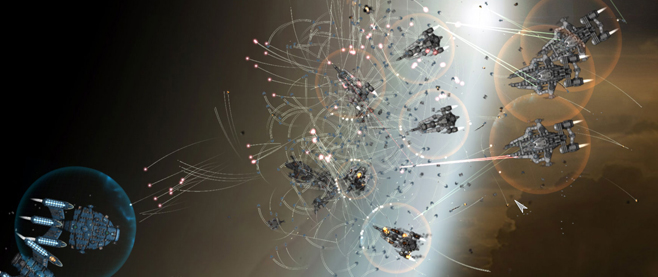Remakes and the Permanence of the Gaming Legacy
As a new art form, video games are still finding their footing in the world. While movies have been around for more than 100 years, and novels ten times that video games didn’t become a popular product until around 50 years ago. The issue of placement is exacerbated when considering how intrinsically games are tied to technological evolution. While the page doesn’t change, computer systems are constantly developing, unlocking new possibilities.
The evolution of video games is a positive thing for players. Each generational leap lets us explore new horizons, upping graphical and gameplay to new heights. This leaves some questions, however, such as how we regard the classic titles that technology leaves behind. Like the thousand-year-old Tale of Genji or La Fée aux Choux, the importance of these titles remains, even if they’re more difficult to appreciate in a modern context.
Several major forces are working to maintain the legacy of games. One of these is video game preservationists. These are the people who track down old titles, often on obsolete formats, and convert them to more permanent forms of media. In terms of modern industry forces, the most common approach to the preservation of a legacy can come in the form of a remake.
Staying True to a Vision
Every video game is a product of its time, but it’s also a reflection of culture. Take a classic title like Super Mario Bros for example, which was released in 1985. The technology at the time was cutting-edge but of limited potential. The world of Super Mario Bros was a positive one, as a demonstration of the place early video games held in the world of entertainment. They were not usually seen seriously, so they usually didn’t bother with serious themes.
1993’s Doom stood out as a game that demonstrated the changing of western video gaming culture. In an age of grunge, Doom was a horror title that pulled no punches. Heavily criticised for being too violent, games like Doom and Mortal Kombat directly led to the creation of the Entertainment Software Rating Board. To both Super Mario Bros and Doom, direct ports onto modern systems allow a close translation of how the titles were originally played. The problem lies in how they originally felt, and this is where remakes come in.

Remakes aren’t just about making money off an old product, the careful efforts involve trying to capture the same feeling while being updated to the technology of a different time. Accomplishing this feat is a difficult task, relying on finding a balancing point between what used to be a necessity, and what is now possible.
Perhaps the purest illustration of the problem of maintaining similar feelings can be found not in video games, but in the digital sphere of casino games. For centuries, games like poker were necessarily played in person. Today, the best online poker (โป๊กเกอร์ออนไลน์) websites leverage modern software to allow experiences and features that weren’t possible in older systems. Including bonuses like deposit matches and mobile functionality, what surrounds the experience is very different, but the core retains that classic poker vibe. In addition, these games may be played anywhere in the world and are available in a variety of languages.
The same could be said for other physical games like electronic darts. An obvious conversion of the original game, the newer technology of digital darts is in many ways a step up from the original game, but the central experience and fun remain. They don’t replace the originals entirely, but this newer system does provide another way to engage.
Take these concepts, and apply them to the upcoming Resident Evil 4 remake. The original launched on PS2 and GameCube back in 2005. This title revolutionized the series, pushing third-person gameplay and even popularising the now contentious quick-time events. Three console generations and 17 years later, however, the remake needs to rediscover where it wants to stand.
What used to be revolutionary in RE4 is now outdated. The firsts are now humdrum, and the expectations are a million miles from where they began. Like all remakes, RE4 Remake needs to push far enough to generate the same feeling in a different cultural and technological context, while not alienating the fans who made the first iteration popular. It’s a path every remake must walk, and it’s one filled with hurdles and pitfalls.
A good remake never replaces the original, it builds on its legacy. At the moment, we tend to look at remakes as the only follow-up, but long term, the place of remakes could be very different. Instead of being a set of original and remake, remake culture will likely remain a permanent part of the gaming ecosystem that rears its head for specific titles every few years. In this way, remakes, like the origins, could be snapshots of both society and gaming’s development across the generations. Let’s just hope gaming doesn’t take the road of movies, where it seems new ideas are constantly left by the wayside.





